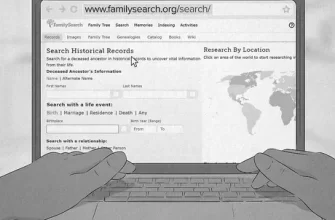In the event of a divorce, the question of who gets to keep the house is often a major one. While there are many reasons to sell the home, determining who gets to keep it is not a separate void. Instead, it is often woven into the overall settlement agreement. While deciding who gets the house is easier in a community property state, the issue is more complicated in an equitable distribution state.
Selling a home in a divorce
If you’re going through a divorce and want to sell your home, you can do so in a variety of ways. You can list your property with an online real estate listing service such as iBuyers. But be wary of companies that give cash offers for homes because they don’t put your bottom line first. Portland inventory is at a record low, so this move may have negative consequences, and you should consult with a real estate attorney before you sell your property.
The best way to sell your home during a divorce is to come to an agreement on what you will and won’t do with the property. This way, you’ll satisfy your spouse and avoid any litigation. But stipulations aren’t always possible, and sometimes a few parties simply can’t agree. Besides, a stipulation may be impossible for every couple. So how can you make sure that you’re doing the right thing? Here are some tips for getting the best deal possible.
First, know that a divorce will have financial consequences on your ability to sell your home. Depending on your circumstances, you can agree with your spouse to sell your home before the final divorce is finalized. If you’re the one selling the home, you should be aware of the tax implications. The sale of your home could create a huge alimony issue, and alimony is one of the biggest factors. Despite the fact that your spouse wants to sell the home, alimony is an extremely complicated issue. It’s also important to keep in mind that the sale of your home will be subject to court.
One way to avoid losing your home is to purchase out your partner. The price can be as much as half of the home’s market value, or even more. This decision may depend on the income of each party, the amount of financial contribution each party made to the home, and the potential to earn. Buying out your partner’s interest in the property may be a good option if you don’t want to fight about it.
Buying out a spouse in a divorce
One way to buy out a spouse in a divorce is to make a cash offer to purchase their former partner’s share of the home. This way, the buying spouse will get the property in his or her name without having to pay for the rest of the marital assets. Sometimes, one spouse may want to keep the home and keep the share of the equity in exchange for giving up his or her retirement account or investments. This type of buyout is called a «gradual buyout.»
Depending on the circumstances of your case, a buyout may be a good idea. This type of buyout minimizes the amount of time spent in court arguing over the property, while also ensuring that the children will still live in the home after the divorce. There are certain things that must be considered, however, before buying out your spouse. Before you begin the process, make sure that you and your spouse agree to the buyout and have the funding to make it happen.
The most important aspect to consider when buying out a spouse in a divorce is the amount of equity that each partner has in the home. In a divorce, if one spouse is unable to sell the house for whatever reason, it may be best to wait until the housing market improves so the two spouses can purchase out their share of the home. Also, it is a good idea for the children if the divorce proceeds amicably. It will avoid a significant transition for the children.
The first step when buying out a spouse in a divorce is to get an appraisal of the home. You and your former partner should choose an appraiser together to get the right value. However, the appraisal may come out higher or lower than what you expect. The appraised value of the house must be lower than the debts that have been agreed. In addition, the appraiser should not factor in sales commission costs or future adverse capital gains tax.

Financial implications of selling a house in a divorce
One option for divorcees who want to remain in their family home is to sell the house and split the proceeds with their spouse. In some cases, the separating spouse will keep the home, but they must qualify for a refinance loan in order to sell it. The mortgage and other financial obligations are difficult to divide when both parties own a home. A divorce decree may require a sale.
The financial benefits of selling your house in a divorce are many. For one, it will minimize your tax liability, as you will not have to pay capital gains taxes on the sale. Selling the home early in the divorce process is also beneficial in that the proceeds can be split between the two parties to pay off debts or get other housing. But it is important to remember that selling a house during a divorce is not an easy process.
If you and your spouse agree to sell your house before the divorce, you can avoid the stress of a negotiated settlement. Before you sell the house, make sure both parties agree that it is the right time for the sale. Otherwise, you will risk torpedo a potentially good offer because you have made it unattractive. Either way, you should consider if selling your house before the divorce is final.
The biggest tax issue to deal with when selling a house in a divorce is capital gains and the prop 60/90 tax. It is also important to remember that if you used two incomes to buy the house, you may not qualify for the same loan with a single income after the divorce. If the sale goes through smoothly, it can even be a clean transaction. You might not want to sell the home for emotional reasons.
When selling a house in a divorce, your spouse must think long-term. In addition to dividing the profits, there are many expenses that come with homeownership. The cost of a furnace repair may easily run into thousands of dollars, so determining how you will split the costs should be your top priority. The costs involved in owning a house are significant, so consider this before you sell the house.
Keeping the house in a divorce
The person who lives in the family home during the divorce is not necessarily the one who will keep it. This is especially true if the couple has children together. Even though the house was the source of a great deal of yelling and arguing, it does not necessarily mean that the same spouse will keep it after the divorce. Some property is acquired through inheritance or a gift, and it is also subject to division during the divorce.
The decision of what to do with the house is an important one. It involves substantial money, and it has implications for the next chapter of a couple’s lives. Some couples choose to sell the house and split the proceeds equally. Others opt to defer the sale to a later date, especially if the couple still has children. The best way to resolve this issue is to consult an experienced divorce lawyer. It is crucial to know your rights and options as the house is one of the biggest assets you have.
The decision of selling the house or keeping it should be part of the global settlement. The house’s value should be considered in the context of the divorce settlement, including other assets and debt. If you and your spouse plan to sell the house, you may need to give up other assets. For this reason, you should determine the value of your home and obtain an appraisal. You can then use this value in negotiations. A negotiated settlement will give you greater flexibility and control.
If the house has a mortgage, keeping the house may be more difficult. Some lenders will allow the new owner to assume the existing mortgage, removing it from the other person’s debt. However, if you do not have enough income to refinance the house, you may not be able to. You may have to look for a property-sale specialist in your area. They can help you keep your house in an affordable way and guide you through the entire process.

If your spouse is refusing to sign the papers for a divorce, you may wonder how to proceed. The reasons for this refusal are varied and may be based on several factors. Whether your spouse is trying to avoid a divorce or hoping to save the marriage, you will need to make your reasons clear. If your spouse refuses to sign the papers, you will likely need to explain why you are filing for divorce.
Irreconcilable differences
If you’re wondering, «How to get a divorce if my spouse will not sign the papers,» it’s important to keep in mind that your spouse’s refusal to sign the documents can have several different motivations. Sometimes your spouse wants to save the marriage and may want to delay the divorce process until it is a certainty. Either way, your first step should be to consult an attorney.
If you’ve done couples counseling, met with an attorney, and agreed that a divorce is the best option for you, the next step is to draft a Complaint. You may have already sent a letter to your spouse requesting a divorce, but your spouse hasn’t responded. In this case, it’s time to consider your options. Listed below are a few tips to help you decide whether you should file a Complaint or go to trial.
Serve the papers. You have 60 days to serve your spouse with the divorce papers. The court will require that you serve your spouse with the papers. Make sure you document your attempts to contact your spouse, because failure to serve them will delay the divorce process. You should also make copies of all correspondence, including undeliverable mail, to prove that you tried to reach your spouse. Ultimately, the court will decide whether you’re eligible to proceed with the divorce.
While filing a divorce petition without the signature of your spouse can be complicated, you can still get a divorce. The divorce procedure is far easier if both parties cooperate. It’s better to prepare the papers ahead of time. You might want to talk to your spouse and try to get them to agree to it. If your spouse won’t agree to the divorce, the process can be facilitated with an attorney.
Even if your spouse refuses to sign the papers, you can still file the divorce petition. If your spouse doesn’t appear or respond to the divorce petition, the judge can issue a default judgment. If your spouse fails to appear in court, he or she may decide to divorce you. If your spouse won’t sign the divorce papers, it’s best to hire an attorney to guide you through the process.
Your spouse might refuse to sign the papers if you’re in disagreement with the terms of your divorce. If your spouse refuses to sign the divorce papers, he or she might be trying to make the situation more complicated for the other spouse. In reality, refusing to sign the papers doesn’t hinder the divorce process; it just delays the process. If you’re worried about the process, contact an attorney today.
Florida law does not consider gender when determining whether a spouse must sign the papers. The same applies to men and women who refuse to sign divorce papers. But if your spouse refuses to sign the divorce papers, you’ll likely have to file a motion in order to convince your spouse to agree. However, if your spouse will not sign the papers, don’t lose your cool. The process could take years to complete. If you’re married in Arizona, you don’t have to admit fault.
Default divorce
If you are trying to get a divorce and your spouse won’t sign the papers, you’re not alone. Many spouses will resist a divorce filing for a number of reasons. Sometimes it is just a way of trying to hold onto assets or the children. However, there are also times when your spouse is simply desperate and won’t sign the papers. If this is the case, you should consider getting a divorce attorney.

When your spouse won’t sign the divorce papers, it may be time to file for a default divorce. This option will save both of you money and avoid a lengthy court battle. Additionally, it will spare you the headaches of providing extensive financial information, which is common during regular divorce proceedings. A default divorce is one of the best options if your spouse won’t sign the papers. You should only consider this option if your spouse refuses to cooperate and is showing signs of hostility.
When a spouse doesn’t sign the divorce papers, they have 30 days to respond. This gives you time to file an appearance form, agree to the terms, or settle on a divorce settlement. If your spouse doesn’t appear for the final hearing, you can file a motion for default. The court will then grant the divorce, even without a trial. If your spouse won’t sign the divorce papers, the other party will have a much easier time getting the divorce final.
If your spouse won’t sign the papers, you can still file a divorce petition. Once you’ve served your spouse with divorce papers, the court will set a date for the hearing, and a judge will rule on your petition based on the terms of your petition. After the hearing, you’ll receive a judgment from the judge and receive a divorce judgment. If your spouse doesn’t respond, you’ve lost your opportunity to negotiate a divorce settlement agreement.
In the case of a refusal to sign the divorce papers, your spouse may be using his or her refusal as leverage against you. This doesn’t prevent a divorce, but if your spouse is avoiding serving you with the papers, a court may award a default divorce to the non-signing spouse. Even if your spouse won’t sign the papers, he or she can still file for a divorce.
If your spouse refuses to sign the papers, the court may grant you a default divorce if you don’t have a choice. It’s never a good idea to ignore your spouse’s refusal — it will only result in a more difficult and protracted process for you. But, in the long run, it will end up being worth it for you. If you don’t want to wait for an expensive trial, a default divorce may be the only option.
Failure to cooperate
The consequences of failure to cooperate when getting a divorce are significant. Not cooperating during the divorce process will hinder the case and harm the other spouse. If a spouse fails to cooperate with the court, the judge may hold him or her in contempt of court and issue fines or jail time. In these situations, it is important to cooperate with the court as much as possible to avoid getting a divorce. However, failure to cooperate during the divorce process can also result in a default judgment.
While the Florida law allows a person to represent himself or herself in divorce court, it is best to seek the help of an experienced Jacksonville divorce lawyer. If the other party is unwilling to cooperate with the court, try to reason with him or her before deciding to go to court. This way, you can give your ex-spouse the message that you are prepared to pursue a divorce if necessary. If this fails, you can go to court to get the divorce.
In most states, a spouse is in contempt of court if he or she fails to follow the court order. Depending on the circumstances, the judge may amend the divorce decree and award penalties and attorney costs to the spouse in contempt. If the other party refuses to cooperate, it may take several appearances to compel cooperation from the other party. Therefore, it is important to read the terms of the divorce decree carefully. If your spouse has repeatedly violated the court order, you can file a motion to hold the other party in contempt of court.
Besides refusing to cooperate during a divorce, this can lead to a felony conviction. Fortunately, the Judge has the authority to issue subpoenas and a spouse may be found in contempt of court. A convicted spouse can even get jailed. A failed cooperation during a divorce proceedings can be devastating. You don’t have to get a divorce in order to make your life better.








